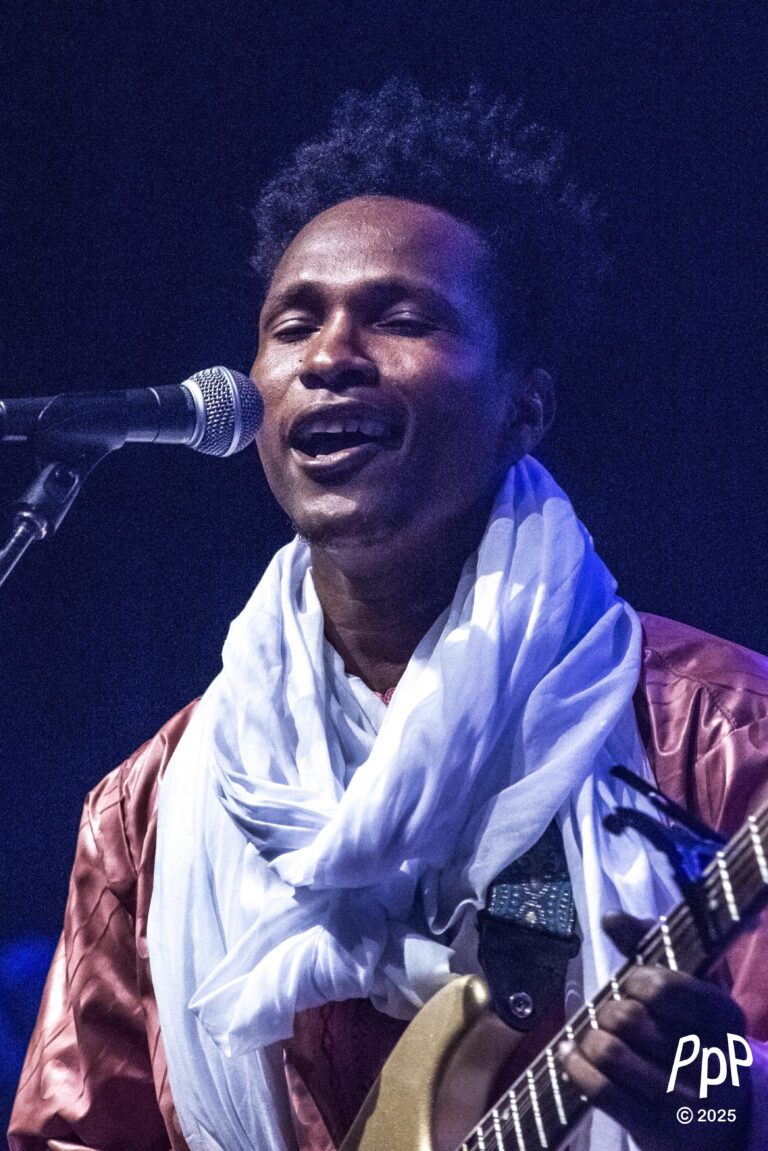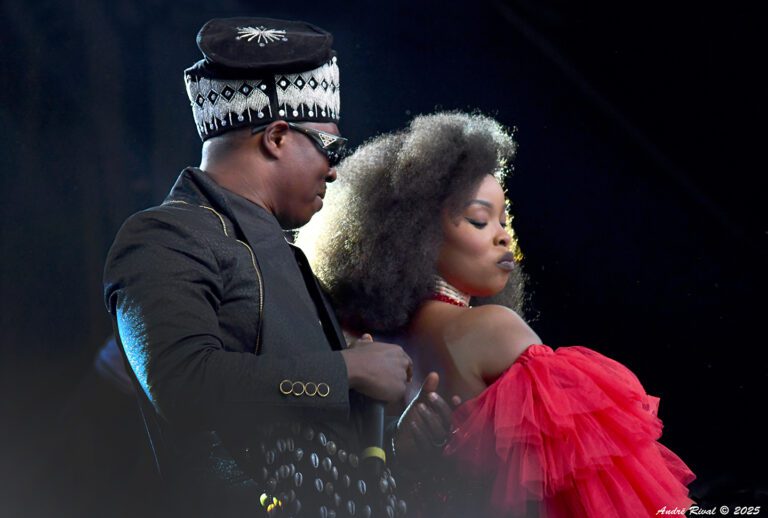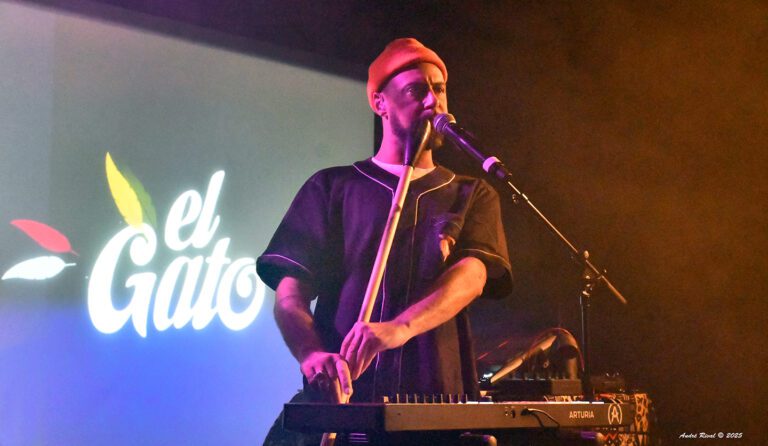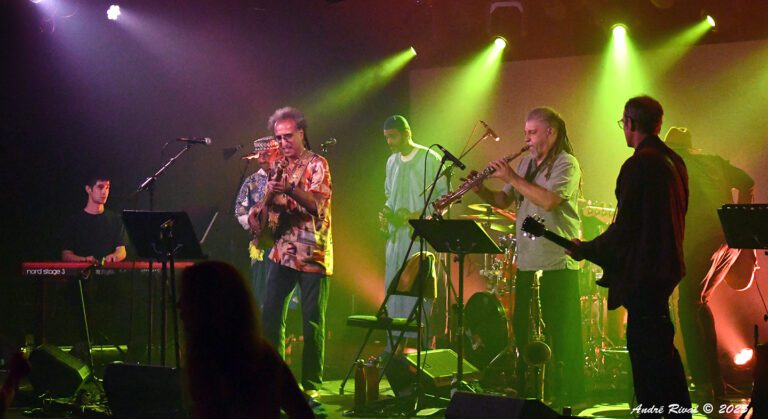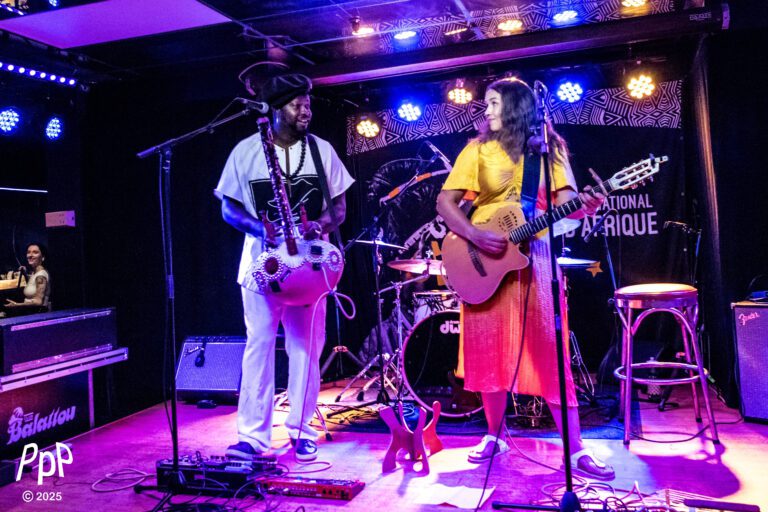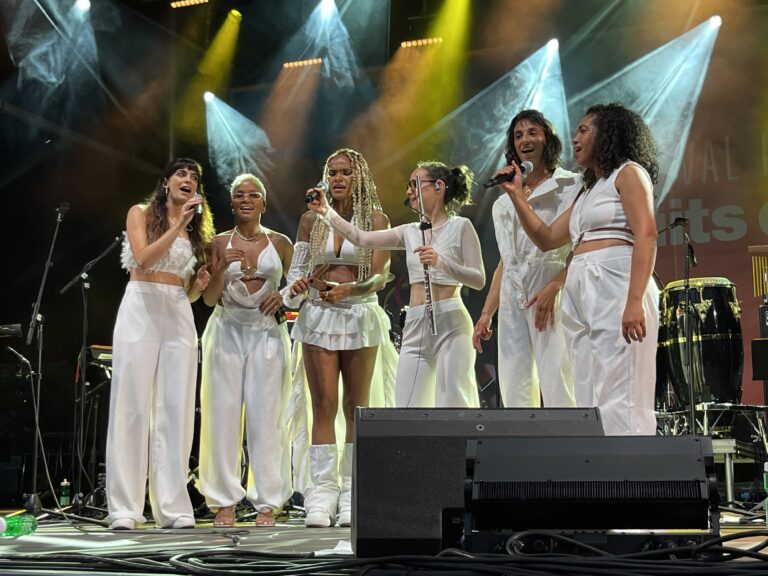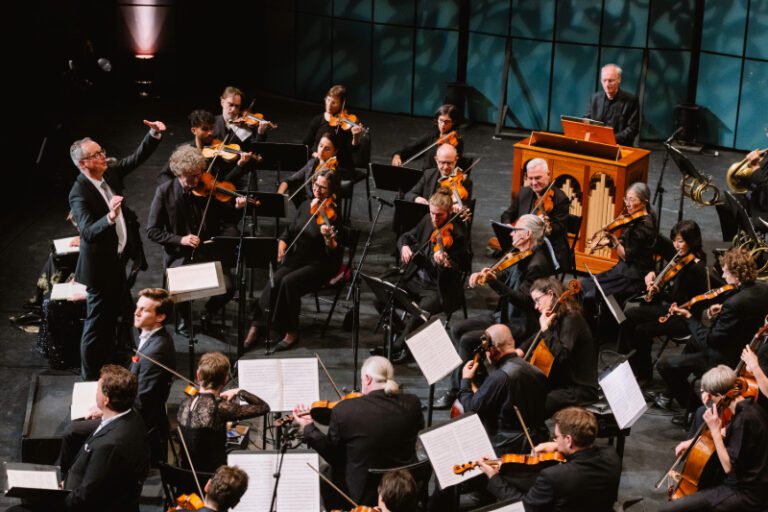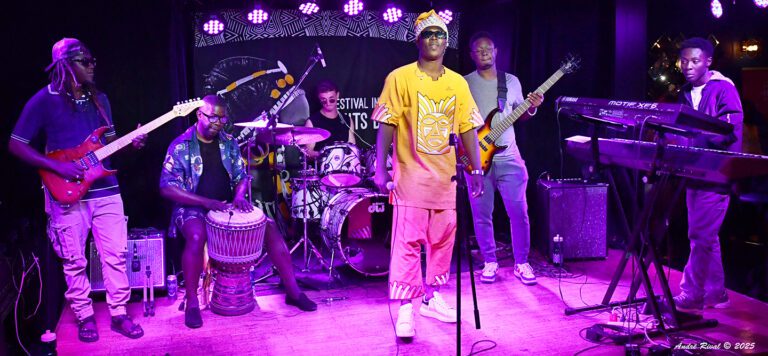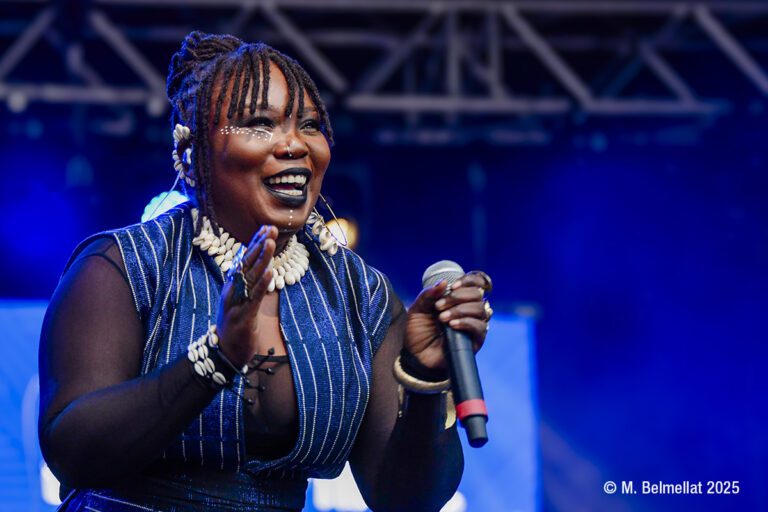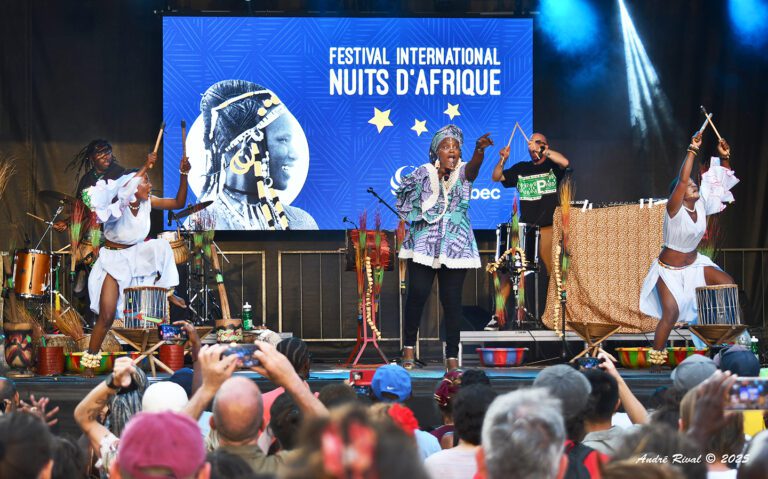As the golden hour washed over Île Sainte-Hélène, a surging crowd of partygoers gathered at Piknic Électronik’s main stage for a Pep Rally takeover — and DJ Fuckoff did not disappoint.
The New Zealand-born, Berlin-based artist (real name Zoe “Stella” Flyger) brought her signature genre-blending style, fusing ghettotech, breakbeat, Latin house and electro into an unapologetically high-energy set for this special edition of Montreal’s open-air Sunday dance ritual, hosted by Pep Rally – Toronto’s boundary pushing BIPOC & femme-centered rave collective.
Her eclectic mixing, cheeky stage presence and provocative vocals cut through the warm July air as bodies moved in sync with the bass-heavy tunes. Known for her raucous, oftentimes provocative lyrics, Fuckoff took the mic to perform her breakout track Boy U Nasty, as the crowd roared along to every line of the chorus.
As the afternoon light warmed up the crowd, she kicked it up a notch with a savant mix of Detroit-influenced techno and some recently released tracks from her 2nd major solo project Fucktopia : Character Chronicles. Hello?, the dark electro-pop meets psytrance banger turned the festival ambiance into a no-holds barred rave moment, as the warm afternoon sun filled the sky with hues of pink.
The synergy between live vocals, pulsating 808’s and chaotic breakbeats created an atmosphere that was both playful, fast-paced & innovative, a perfect match for Piknic’s sundrenched dancefloor and energetic crowd.
By the time her set closed, as day turned into night, DJ Fuckoff had done more than warmed up the crowd, she ignited it.

